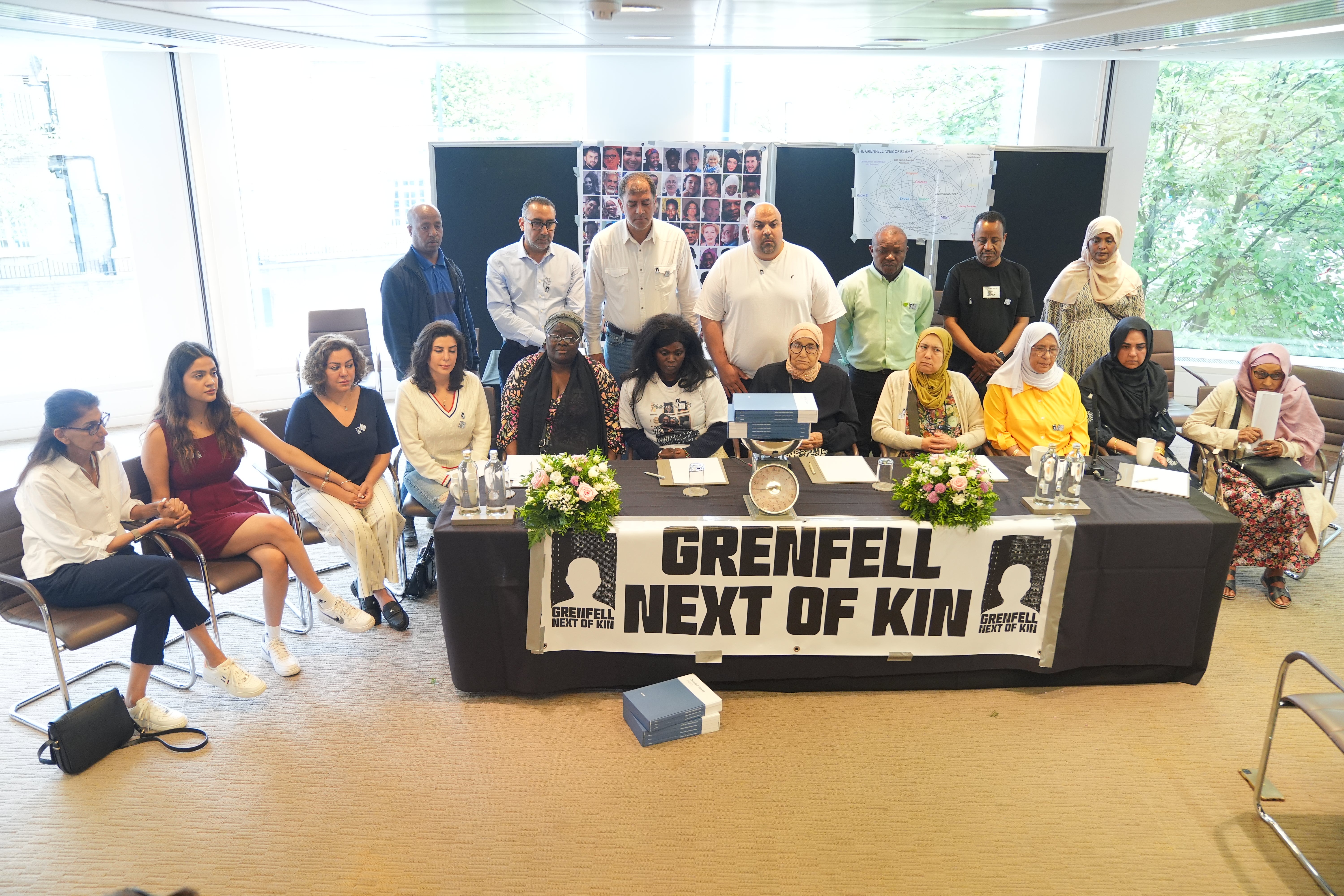Grenfell bereaved demand answers over Theresa May’s decision to call public inquiry ahead of police probe
Exclusive: Grenfell Next of Kin claim former prime minister’s decision ‘had massive consequences on our pursuit of our justice’
Your support helps us to tell the story
From reproductive rights to climate change to Big Tech, The Independent is on the ground when the story is developing. Whether it's investigating the financials of Elon Musk's pro-Trump PAC or producing our latest documentary, 'The A Word', which shines a light on the American women fighting for reproductive rights, we know how important it is to parse out the facts from the messaging.
At such a critical moment in US history, we need reporters on the ground. Your donation allows us to keep sending journalists to speak to both sides of the story.
The Independent is trusted by Americans across the entire political spectrum. And unlike many other quality news outlets, we choose not to lock Americans out of our reporting and analysis with paywalls. We believe quality journalism should be available to everyone, paid for by those who can afford it.
Your support makes all the difference.Relatives of Grenfell Tower fire victims have demanded answers over Theresa May’s rapid decision to order the public inquiry, which they now fear has delayed the criminal prosecutions of those responsible.
The day after the blaze that killed 72 people on 14 June 2017 – as the fire was yet to be brought under control and people desperately searched for missing loved ones – the former prime minister ordered a full public inquiry to ensure “this terrible tragedy is properly investigated”.
But with the inquiry’s final report published this month, police have said they must now go through its findings “line by line” – meaning charges are not expected to be brought until the end of 2026, with the prospect of trials not commencing until 2029.
Police are said to have told Grenfell survivors they have “never known a public inquiry to be conducted at the same time as a criminal investigation”, and bereaved families now fear the complex “web of blame” heard by the inquiry could make it more difficult to prosecute for manslaughter.

The group Grenfell Next of Kin – which includes the immediate relatives of 34 victims – has now written to Baroness May to demand answers over the advice she received before calling the inquiry.
In the letter, seen by The Independent, Kimia Zabihyan, an advocate for the group, wrote: “Your decision only hours after the fire, before you had visited the site even, had massive consequences on our pursuit of our justice.
“It has delayed justice and will essentially make it very difficult if not impossible to bring manslaughter charges... We would like to know what advice you took and if you were aware of the impact that an inquiry going before criminal prosecutions would have on our right to justice?”
Warning that assurances given days after the fire by ministers Alok Sharma and Nick Hurd that the inquiry “would not delay the conclusion” of the police probe have turned out not to be true, Ms Zabihyan asked: “Can you please tell us what advice you and your cabinet had and from whom?”
While London mayor Sadiq Khan had been among those demanding a full inquiry prior to Baroness May announcing it, MP David Lammy – whose friend Khadija Saye died at Grenfell – had already called the fire “corporate manslaughter” and called for arrests.
Seven years later, Ms Zabihyan warned the “web of blame” heard by the inquiry – a term lead counsel Richard Millett KC used to illustrate the magnitude of claims and counterclaims made by cladding firms, developers, the council, and government itself – has almost done “the defence’s job for them”.
“By putting the inquiry first, they gave the organisations and individuals the opportunity to defend themselves – not before a court and judge and jury that could then decide the causation of the deaths – but before a sort of mock court, if you like,” Ms Zabihyan told The Independent.

“But now that evidence has to be taken into consideration by the CPS, which means that it would be difficult for the people or organisations named to be charged especially for manslaughter charges. That’s really infuriating the immediate family members, who are saying: ‘Why did you take us down this road?’”
Max Hill, who was director of public prosecutions from 2018 to 2023, told The Independent that he “can certainly see” why Grenfell bereaved and survivors would have wanted criminal investigation and prosecution before the public inquiry.
“The police and the CPS are used to complex investigations,” he said. “Of course, there is a mass of detail, look at other major and complex investigations and prosecutions. The task at hand is to cut through the detail.”
While criminal probes “would have taken years in any event” and the information gathered by the inquiry will help the police, the immunity given to some inquiry witnesses means police and prosecutors will still have to gather evidence that will be admissible and reliable in court, Mr Hill added.
Scotland Yard’s Grenfell lead, Detective Superintendent Garry Moncrieff, previously told The Times that manslaughter and homicide “is at the heart of our investigation”, but said that “manslaughter is one of the hardest of cases to prove”.
He said that in the case of Grenfell “you have got so many people and companies that are involved”.
In the same interview, Deputy Assistant Commissioner Stuart Cundy repeatedly said “confidently” that his officers will submit charging files to prosecutors.
This week, a House of Lords committee called for a major overhaul of the public inquiry system, including “better decisions at the start of an inquiry to expedite its work, reduce costs and ensure victims and survivors are properly involved”.
Baroness May was approached for comment.
